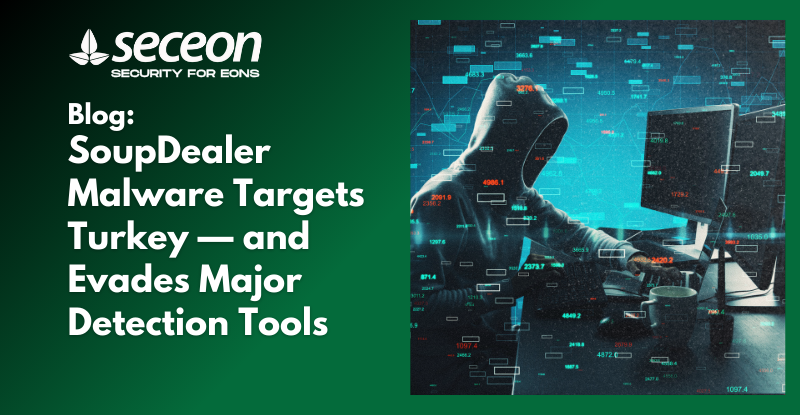
A newly uncovered malware campaign in Turkey is raising alarms across the cybersecurity community. SoupDealer, a sophisticated Java-based loader, has been deployed in targeted attacks that bypassed every public sandbox, antivirus engine, and enterprise EDR/XDR tested against it.
As reported by Cyber Security News, SoupDealer uses selective targeting—activating only when specific system language, location, and operating conditions are met—to evade most global research environments.
Although this campaign is currently focused on Turkey, its techniques—selective targeting, memory-only execution, and use of legitimate system tools—are part of a growing trend in advanced threats. These methods could easily be adapted to attack other regions, industries, or high-value infrastructures.
For organizations that rely heavily on sandboxing, signature-based antivirus, or endpoint-only tools, SoupDealer is a clear reminder: stealthy threats can walk right past static defenses.
Because SoupDealer avoids dropping files to disk and blends in with legitimate processes, it’s invisible to many traditional monitoring tools. The attack chain shows why organizations need detection that can:
In the case of SoupDealer, no single defense would have been enough. A layered approach could have detected suspicious behavior at multiple stages:
The fact that SoupDealer evaded every tested sandbox and AV/EDR suite is a warning to the industry: modern cyber threats aren’t always loud, obvious, or malware-based. They’re quiet, targeted, and patient—often hiding in plain sight.
For defenders, this means detection strategies must evolve to focus on behaviors, correlations, and anomalies rather than just signatures or known indicators.
At Seceon, our AI-driven platform is designed to catch exactly these kinds of threats. By combining real-time behavioral analytics with automated response, we deliver visibility across cloud, network, endpoint, and application layers—ensuring that stealthy, high-risk campaigns like SoupDealer are detected and stopped before damage occurs.
